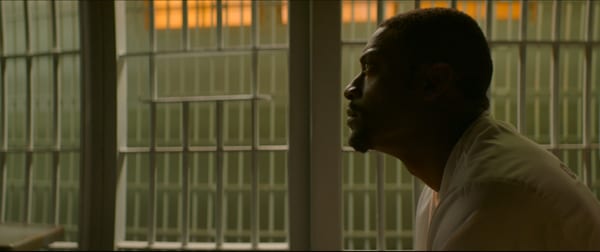
Clemency – A Warden’s Walls
?You want to be whole.? A couple of hours before viewing Clemency, I took in an excellent photo exhibition focusing on walls. That influenced how I understood this powerful film. The obvious reason is that the film takes place mostly within a prison, but that is only one of the kinds of walls we encounter….

